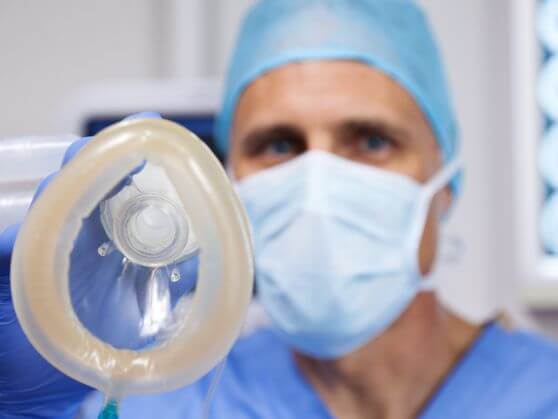Dentistry under anesthesia
Does the thought of dental treatment give you stomach cramps?
Are you afraid of dental treatments due to previous bad experiences?
Do you not want to undergo oral surgery?
The solution to your problem is anesthetic dentistry. Do not delay solving your long-standing problem, because you will not feel anything or have any memories of the interventions performed under anesthesia.

Benefits of anesthetic dentistry
- Completely safe – during anesthesia, Medicover Hospital’s anesthesiologist monitors your condition using machines
- It can be conveniently and easily performed in a private dental office
- You don’t feel anything from the treatment – you don’t see, hear, or feel the treatment
- After the treatment you can go home immediately
A solution for anxious patients
Many people struggle with the fear associated with dental treatments. This is often an inhibitory factor for them in visiting a dentist. As a result, dental treatments are postponed and the condition can get worse, putting the patients in an even more difficult situation. If this sounds familiar to you, we have good news. You do not have to fear or postpone your dental treatment anymore. During anesthesia, your senses are “switched off”, so you will not feel anything of the treatment.
What tests are necessary before anesthetic dentistry?
In order to make the anesthetic dentistry safe, a few tests are required. It is important that during the personal consultation we get to know your general state of health, medications you are taking, and medical history, so that we can refine your treatment plan.
- During an anesthetist examination, the anesthetist at Medicover Hospital gets to know your general state of health and analyzes possible risks
- ECG examination, which gives a clear picture of the heart’s function
- Analysis of a complete laboratory blood test, which reveals whether it is suitable for anesthesia

What makes anesthesia safe?
In Hungary, anesthesia can only be performed with a permit. In order to obtain a permit, strict conditions must be met. Anesthesia can only be performed by an anesthetist with the cooperation of the appropriate specialist staff. During anesthesia, a modern anesthesia machine takes care of monitoring the patient. Blood pressure, oxygen level, breathing, heart rate and many other parameters are monitored during anesthesia. During anesthetic dentistry, the airway is secured, so the risks associated with dental intervention are minimized, in contrast to awake sedation, which is extremely dangerous during dental treatments.
For which treatments do we recommend anesthesia?
- For oral surgery interventions, such as wisdom tooth removal
- For implantation interventions
- For bone replacement interventions
- For performing complex, long-lasting treatments
- For the care of mentally disabled patients
- For any dental intervention in case of anxious patients







